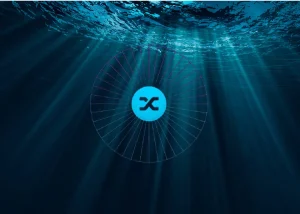The Solana blockchain network is currently grappling with a myriad of challenges stemming from a surge in user activity. One of the most pressing issues is chain congestion, which has prompted stakeholders within the blockchain ecosystem to contemplate significant alterations to the network’s operations. Additionally, the exponential growth in decentralized finance (DeFi) activity has attracted nefarious actors seeking to exploit the network’s low fees.
Solana to take measures to curb network concerns
In response to these concerns, Jito Labs, a Solana infrastructure developer, recently announced the cessation of its mempool service. Although Solana itself does not possess a mempool, Jito’s Block Engine ingeniously introduced one to facilitate what is known as “maximal extractable value” (MEV) on the network.
Positive MEV enables traders to pay extra fees to prioritize their transactions. However, the dark side of MEV, known as negative MEV, has given rise to sandwich attacks. In these attacks, traders utilize sophisticated bots to execute transactions before and after a targeted trade, artificially manipulating the asset’s price to benefit the attacker while harming the victim.
The decision to halt mempool functionality was driven by the aim of enhancing the user experience on Solana, particularly in light of the network’s struggles with congestion exacerbated by the influx of meme coins and non-fungible tokens (NFTs). This congestion has posed significant operational challenges for projects like Drip, which churns out hundreds of thousands of NFTs daily for its user base.
Balancing stability and growth on the network
Solana’s co-founder Anatoly Yakovenko recently floated the idea of aggressively increasing block space on the network to alleviate congestion, albeit at the risk of heightened network outages. However, a Twitter poll conducted by Yakovenko revealed that the majority of respondents favored prioritizing network stability over managing congestion, reflecting the prevailing sentiment among Solana traders.
While NFTs do contribute to network congestion, the primary culprit remains meme coins, with users churning out an unprecedented number of new tokens on a daily basis. Encouraged by the soaring popularity of Solana meme coins such as Dogwifhat and Bonk, users have been prolifically creating new SPL tokens at an unprecedented rate, setting new daily records for network activity. This deluge of token creation exacerbates the congestion issues faced by the Solana blockchain network.
The Solana blockchain network finds itself at a critical juncture, grappling with the twin challenges of chain congestion and malicious activity. While efforts are underway to address these issues, including the cessation of mempool functionality and discussions around network expansion, the road ahead remains fraught with challenges. However, with continued collaboration and innovation within the Solana ecosystem, there is optimism that these challenges can be overcome, paving the way for a more resilient and scalable blockchain network.




